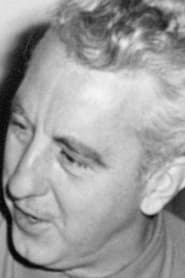Dudley Nichols
Writer
From Wikipedia, the free encyclopedia Dudley Nichols (April 6, 1895 – January 4, 1960) was an American screenwriter and director. Dudley Nichols was born April 6, 1895, in Wapakoneta, Ohio. He studied at the University of Michigan where he was active member of the Sigma Chapter of Theta Xi fraternity. After working as a reporter for the New York World, Nichols moved to Hollywood in 1929 and became one of the most highly regarded screenwriters of the 1930s and 1940s. He collaborated on many films over many years with director John Ford, and was also noted for his work with...
Born: April 6, 1895 in Wapakoneta, Ohio, USA
Died: January 4, 1960 (Age 64)
Streaming Sources for all Dudley Nichols Movies & TV Shows

